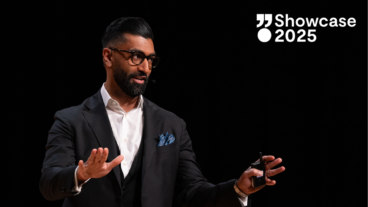The new world of work is changing rapidly. We have a more mobile, diverse, and hybrid workforce alongside a younger generation of workers who are willing to leave quickly if they don’t feel engaged.
When team members experience belonging, research shows that it leads to higher engagement, increased innovation, better productivity, and retention of talent. By how much? How about 56% more productive, three times higher engagement, and 50% lower turnover. Yet in a recent study, while over 85% of workers said it was important for them to bring their full selves to work, only 48% experienced that in their workplace.
Creating a sense of belonging and community has become more important but also more challenging given less face time, greater diversity, and a high expectation workforce. Recently a young millennial employee told me that she quit her job after only 10 days because she didn’t feel she belonged there. She didn’t even have another job lined up!
How Do Team Members Experience Belonging
But how do team members define “belonging?” Belonging can be boiled down to four core experiences: Feeling Known, Feeling Valued, Feeling Respected, and Feeling Connected. In my keynote, “The Power of Connection: Creating Belonging in the New World of Work”, I show leaders how to create belonging with teams and organizations.
Know Them
One of the most powerful ways of creating belonging is for team members to feel that we, as leaders, know them. For years, leaders were told not to get too personal with their employees. This turned out to be very bad advice. In fact, the more leaders are perceived as taking an interest in and knowing about people’s lives outside of work, the more belonging grows.
One of the simple assignments I like to give leaders is asking them to try to name five personal facts that matter about each person who reports to them — things like their main hobbies, their biggest dream, the names and ages of their children, etc.
Another element is taking the time to know how they want to be managed. We often manage people the way we want to be managed rather than the way THEY want to be led. Belonging happens when we learn to lead people as individuals. Our job as leaders is to crack the code of what helps a team member thrive.
Respect Them
Another important element of belonging is respect. In terms of belonging, respect is about creating an environment in which people can differ and be different. When people feel they can be themselves and express their viewpoint without fear, belonging flourishes.
One of the myths in the world of work is that diverse teams perform better. The truth is that diverse teams where there is belonging perform better. When people can bring their unique style and perspective (and feel that it is respected and listened to) they contribute, and they stay longer.
Value Them
We experience belonging when we feel valued. Being valued is even deeper than being recognized, it’s about when people really feel that who they are is seen as important. Not feeling valued has been the number one reason people leave a job for several decades.
One of the things I tell leaders is that the four most powerful words we can use are: I am proud of you. How often do we tell team members what we value about them — something unique to them? Do we create space in every meeting for celebration including the opportunity for team members to value each other?
A simple fast track is to make a list of those who report to you and identify two things you value about them. Over the next few weeks take time to tell that team member what you value.
Connect Them
One of the things we know is that if team members say they have a “best friend at work” they are much more likely to be highly engaged and much less likely to leave. Much of belonging comes from the experience of having relationships with co-workers that are strong. To create belonging, leaders should nurture connections.
When I had the opportunity to work with Google several years ago, I was told that the average Google employee ate 2.1 meals per day on the campus. At the time, Google provided free meals to team members. Free food is nice of course but the real magic happens when people eat together — they develop relationships and relationships create belonging. We need to create team events that build bonds, create space in meetings for people to get to know each other, and ensure new team members have a “buddy” from day one.
Belonging isn’t magic. We create belonging by deliberate actions both as an individual leader and as an organization.
For over 30 years, Dr. John Izzo has helped companies maximize their potential from the ground up. He is a pioneer in employee engagement, leading change, shifting employee and consumer values, and corporate social responsibility, and known for his hard-hitting practical content, inspirational storytelling, and lasting impact.
Transform your organization today with John’s powerful frameworks for cultivating belonging, leading with purpose, and building future-ready teams. His practical approaches help leaders create environments where teams thrive in today’s hybrid, diverse workplaces
Contact us to learn more about John and how his programs can address your specific organizational challenges and help unlock your company’s full potential.




